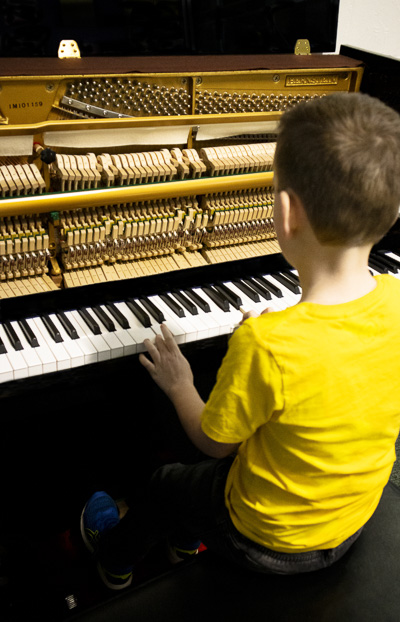I remember from my own days as a student the ongoing battles with my parents regarding piano practise. I absolutely loved learning and playing the piano but come practise time and I just wanted to be watching TV, playing or doing anything rather than piano practise.
Fortunately piano lessons are very different these days. Gone are the days of mindless exercises for strengthening fingers (which actually contain no muscles to strengthen!) and playing a book full reading and technical exercises that provide no musical enjoyment whatsoever.
What hasn’t changed is the importance of practise. I can guarantee that no matter what your reason for learning piano is, without practise students of any age will tire and get frustrated very quickly. Practising reinforces what is learned at lessons, it makes music more understandable and familiar, this in turn means that piano is fun and enjoyable. The repetition during practise lays down neural pathways to pave the way for progress and ensures it is retained in the future. If there is no practise during the week, the following lesson usually ends up being a repetition of the week before – this is no fun for me or you!
In the early days of music lessons much of the weeks practise is actually learning how to practise effectively. Just playing through pieces will lead to improvement but it is a very slow way of learning and quickly leads frustration. Each lesson I complete a homework guide for children to help focus practise and to teach techniques to practise effectively. Quality piano practise can be achieved in a short time when approaching it with targeted practise goals.
Here are some tips to help your children get the most out of practise.
Tips for parents:
- Set a regular practise time so that it becomes a usual part of the daily routine
- Ensure practise happens on the days directly following lessons, don’t wait a few days before reinforcing lesson content
- Don’t put a time on practise rather make it goal oriented. If children focus and achieve their practise goals the are free to do something else, or simply play for enjoyment.
- Help children read their practise diaries and encourage them to explain their homework to you.
- Ask to hear your favourite pieces – make your child feel good about sharing their playing
- Encourage singing during playing or sing along if that’s something that you feel comfortable doing.
- Encourage experimentation, improvisation and exploration of sounds
- Use games to make repetition fun
- Roll a dice to determine the number of times they practise a particular goal
- Download a spinning wheel app and choose the order of practise randomly
- Have ‘Silly Siestas’ and choose a silly action to regroup if children are getting frustrated
Please remember, the piano lesson itself is only a tiny part of learning to play. Our ultimate goal is to have fun playing and this can only happen with regular (assisted) practise. The real growth happens at home and the parents role is integral to this.

